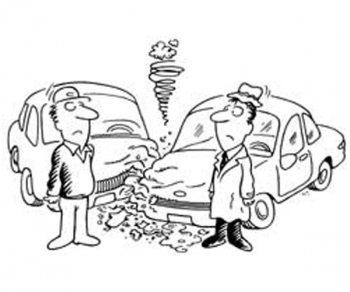Eight Things to Check Before Purchasing Your Auto Insurance

Purchasing auto insurance may seem easy. What you can do is go to the most popular insurance company, check their coverage plans briefly, and pick a policy that you like. Alternatively, you can choose the one your friends and family members recommend. Is this what you really should do? Probably not! You have to show extreme care in picking a good car insurance policy. You have to ask the right questions and get the right answers. In this article, you will read about eight important things to check before purchasing your car insurance.
1. The Valuation of the Car
You can find out how much premium you have to pay for a car by evaluating the car. If you are planning to buy a new car, check with the manufacturer or an insurer to see how much premium that car may need. You have to factor into your budget the price of the car and the insurance premium you have to pay. For pre-owned cars, the insurer may not give you an accurate premium if the value of the car is unclear.
You also have to find out whether the insurer pays what is known as ‘the actual cash value’ of a car or an agreed-upon price in the event of a total destruction. Most insurance firms use the NADA guide to evaluate a car. Find out how your insurer does this.
2. Premium Payment Options
Talk to your insurer and find out if you can make your premium payments in periodic installments (monthly or bi-monthly), rather than paying it annually. Several insurance companies give their customers flexible payment options. Many people find it easier to make monthly payments.
3. The Types of Coverage Needed
Before purchasing the insurance, find out what sorts of coverage you actually need. There are various coverage options on a car insurance policy. For instance, comprehensive coverage reimburses you for theft, fire, natural causes, etc. Collision coverage is for accidents. Personal injury protection reimburses you for any medical needs as well as loss of pay from your company in the event of an accident. Study the policy in detail and select only the coverage options that you need.
4. Assessing Your Risk Factor
The premium you pay for your insurance depends on how often you are likely to make a claim. If the company thinks that you are likely to claim more often, your premium will naturally be higher. Check with your insurer to see how they assess the risk factor posed by you. Young male drivers aged below 30 are supposed to get into accidents more often, and as a result, they are charged the highest premiums. The more experienced you are with safe driving, the better your premium will be.
5. Is the Policy Only for You or for Anyone Driving the Car?
This is one of the most important questions to ask your insurer. If another person is driving your car, does the insurance policy still apply or not? Imagine your adolescent son driving your car. If he gets into an accident, does the company cover for that damage? Ask your insurance company about this and get a clear-cut answer.
6. Any Discounts Available
All insurance companies give offers and discounts to their customers. Before purchasing an insurance policy from a company, check with them and find out the details of various discounts available to you. A few discounts apply if there are certain safety features on your car that reduce the likelihood of accidents or medical emergencies. Your insurance agent or the website of your insurance company can give you the details of these discounts.
7. Claims Management
Many insurance firms offer 24/7 claims service. Some companies have highly efficient claims management with online or by-telephone claim reporting. In order to invoke a claim, normally you need to provide your name and your physical address, but if there is anything more, check with your insurer to find out about that.
8. Original Parts From the Manufacturer
You have to find out if the insurer will pay for original parts from the manufacturer of the car in case of an accident. Some insurers pay for the OEM (Original Equipment Manufacturer) parts, which are of the best quality, while others pay for after-market parts, made by third-party manufacturers.
Conclusion
As you can see, it is not an easy task to decide on a car insurance policy. You have a huge number of factors to consider in this. The reputation of a company does not depend on the number of commercials it has on television and the Internet. The quality of a company is in the satisfaction of its customers. Hence, make sure you select your insurance only after in-depth research.
